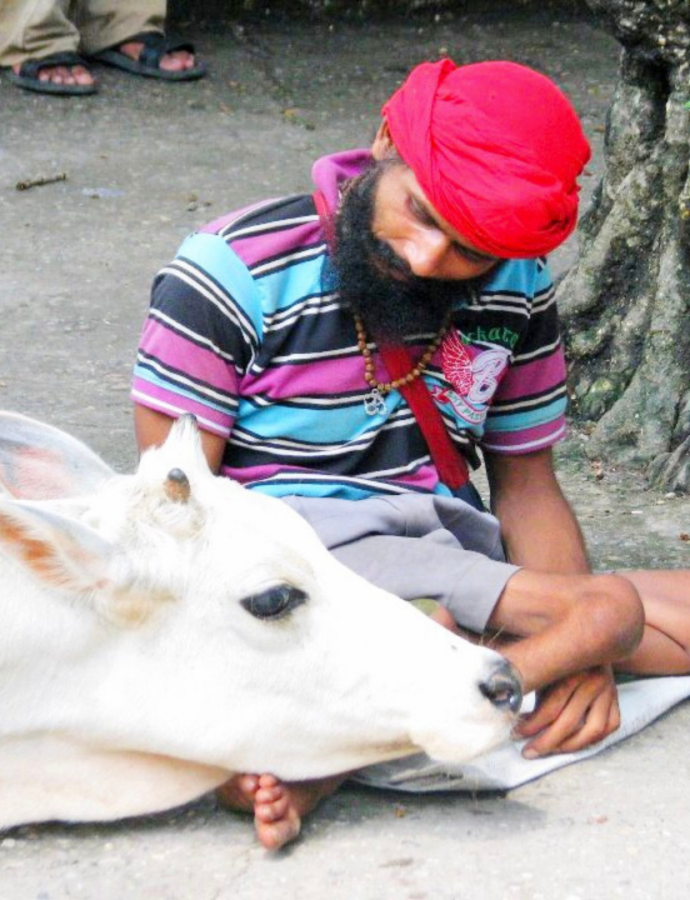
Global Suffering
I found myself clicking on a news article instead of checking my inbox in an attempt to learn about the Israel-Gaza conflict, which has been a long-standing and complex issue involving historical, political, and territorial disputes. I wanted to open myself up to current events. Instead, I read about the mass civilian casualties and shortages of critical supplies and necessities like clean drinking water that meant an increase in cases of diseases like chickenpox, scabies, and diarrhea due to the lack of clean water. Babies were dying. Innocent civilians were left misplaced. My mind couldn’t wrap itself around the devastation and destruction. I felt sick.
A simple click of my mouse pad sent me into a deep, dark pit of despair. A single article among hundreds, perhaps even thousands, circulating across the internet filled my mind with fear and anger. I knew I could continue to build my rage by clicking the next flashy news title or engaging in the endless stream of conversations across the internet or other media sources. But I had had enough. I shut my computer screen, feeling closed off and distraught about the world. The statement “Israel says it wants to crush Hamas” flashed in my mind. I felt an intense sensation in my body that wasn’t there before opening my laptop.
The next thing I knew, my mind was racing with thoughts of doom.
“How could we let this happen? People are starving. There is no hope for the world. It’s just going to get worse. We are going to self-destruct. Leo and the generations that come after him will have nothing to enjoy. This world is such an ugly place. The nights are getting darker. The days are getting shorter. People are suffering. Innocent people are dying. There is no end to the madness. This life is hard.”
I carried this conversation in my mind as I entered the kitchen and found my husband pouring a glass of water. He started conversing about his day. I replied with anger, “The nights are just getting darker, the days are going to get colder, and people will continue to die! We are all going to self-destruct anyway. What does it matter?!” He looked at me confused and suggested that I pump the brakes and take a moment to breathe.
Sunday Suffering
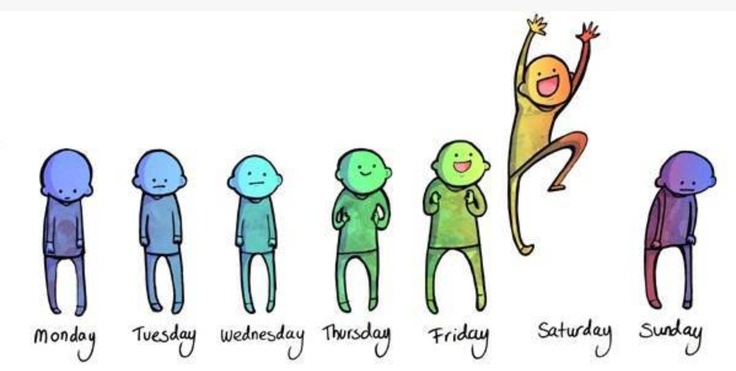
Even without the influence of the news, I continue to find myself spinning into a deep, dark hole of doom and gloom every week. Sundays have always been a challenging day for me since I was a little girl. This day of the week signifies in my mind when the exciting parts of the weekend come to a close. It is time to get serious about life again. Back to productivity, early mornings, and endless running around from one thing to the next.
My mind likes to tell me things to prove how terrible Sundays are. Almost without fail, as soon as I open my eyes on Sunday mornings, I find my mind gathering evidence to support why the upcoming week may end in disaster. “You have so much to do this week. You will never get it all done. I probably won’t get good sleep. I will be tired despite having a full day. Joe also has a big week. That will be hard for him. He likely won’t be able to handle all of it and will get sick. Then I am going to get sick. I will have to cancel all of my clients and all of my classes. We won’t be able to save any money if I never work. I have to find another way to make more money. I’m too tired to do anything. Life is so hard.”
And on and on my mind goes about an imagined pending doom before my first cup of coffee. I feel anxious and agitated despite being in a warm, comfortable bed where nothing has gone wrong. Eventually, I gather enough physical strength to roll out of bed and drag myself into the kitchen. I find my husband pouring me a cup of coffee. He asks me how I slept, and I replied with frustration, ” I hate Sundays. Nothing ever good comes from them. You better take care of yourself. Or else we all will get sick, and I will never be able to work again. Then we will have to sell everything we own.” He looked at me confused and suggested that I pump the brakes and take a moment to breathe.
The Two Choices

I know in the moments when I experience internal suffering, I have two choices. The first choice is to decide to continue to build my argument. I could convince Joe why the world is a terrible, miserable place. I could make him see why we all should be depressed on Sundays. I could throw down all the evidence that my mind comes up with to support my point of view to make Joe see my perspectives. He should see the world the way I do. “Doesn’t he know what is happening in the world?! Why on Earth should I be in a good mood when there is so much to do? Joe needs to see it my way and to feel my pain. How dare he tell me to pump the brakes!”
Then there is the second choice. I could listen to Joe’s advice and pump the brakes while taking a moment to breathe. This decision would force me to tune into what was happening inside my body and slow down my agitated mind. Choosing to pause my racing thoughts could offer me a chance to connect with the hurt and hopeless sensations in my body after reading the news. I would have to look at my fear of the unknown when entering another week. This simple action would allow these emotions to pass through me rather than project onto my husband. If I wanted to, I could release my hurt and remember the world is not a miserable place. I could even release my fear and remember I could handle any day of the week. In fact, the world, and even Sundays, are exceptional and lovable.
Spin-Off
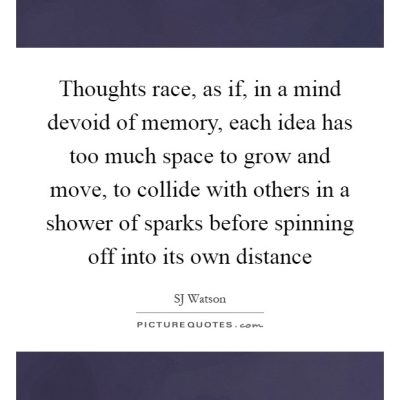
There is so much pain outside of us and inside of us. We don’t come out of our mother’s womb knowing how to stay centered and grounded when challenging things arise- either in our minds or out in the world. We cannot engage with others or the world constructively when we are discombobulated and thrown out of balance by pain. Being present with and understanding our pain prevents us from adding more chaos to the world and passing our hurt or fear onto others.
We are less likely to project our pain onto someone else or out into the world when we pause to process it. We are also less prone to allowing our minds to spin-off, a term Buddhist nun Pema Chödrön uses to describe the stories that our minds create about our experience of pain. Our minds often add layers of thoughts that fabricate our stories and deepen our pain. Painful experiences may trigger our minds to seek out negativity and spin into judgment and blame. This spin-off can make our experiences more complex and emotionally charged than necessary. Layering thoughts onto our initial sensation of pain is what creates unnecessary suffering.
Pain Vs. Suffering
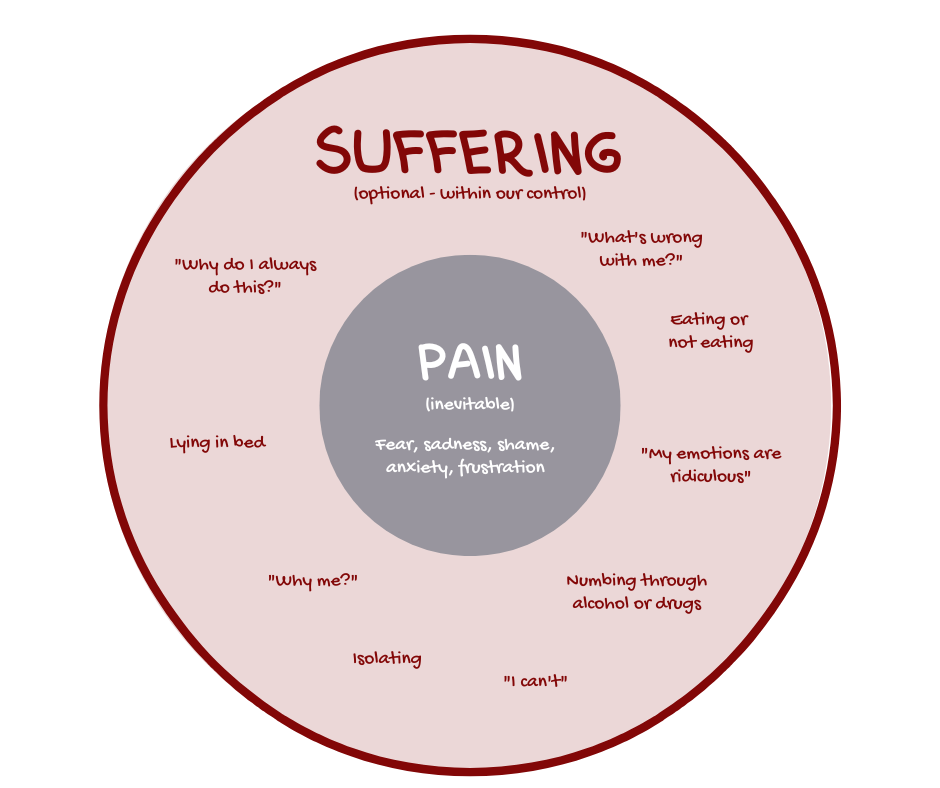
Pain is an unavoidable and necessary aspect of human life. There are many experiences we want to be in pain about- like the death of our dog, sick family member, loss of a job, or unjust wars. We experience emotional pain as sensations in our bodies. Our thoughts or interpretations about the outside world create our pain. For instance, when I think the thought, ‘We are going to self-destruct.‘ I feel fearful. Fear feels heavy in my body and usually concentrates in my chest and throat. The sensation of pain is not problematic. It may feel uncomfortable, but the emotion itself cannot cause harm. Our pain eventually passes through us when we acknowledge it for what it is without spinning off in judgment of it.
Suffering arises when we make our pain mean something about ourselves, others, or the world. We compound our pain when we resist it by generating reasons why we shouldn’t feel it, or engage in problematic behaviors to avoid experiencing it. We fail to notice our state of suffering when our minds spin-off. Instead, we justify our emotional state and place blame on the world around us for causing us so much pain. We become blind to how our suffering is self-created and spin into states of anger, rage, frustration, guilt, shame, helplessness, or jealousy. Our agency is lost and we become a victim to our thoughts rather than the master of them. Before we know it, our minds spin out of control and our actions follow suit.
When in a state of spin-off, we lose the ability to distinguish between life’s circumstances and our perspectives. “The world is a terrible place” is a thought or perspective. In reality, the world consists of both beauty, wonder, and awe, as well as tragedy, darkness, and terror. We create a terrible world in our minds when we spin off and solely focus on tragedy, darkness, and terror. The thought “Sundays are terrible” is a perspective. The reality is Sunday is just like any other day of the week. We make Sundays terrible when we focus on all the things that prove our perspective true and forget about the other side. We expend excessive energy attempting to assign useless meaning to our experiences, which can lead us into a pit of suffering. The world is as it is. Sundays are as they are. What if we made our experiences as simple as that?
How Suffering Plays Out In My Life.
- Circumstance: The news article said, “Innocent people are dying.”
- Thought: That is so unjust
- The Feeling of Pain: Hurt
- Actions that create suffering: I layer on thoughts about why the world is a terrible place, my mind ruminates on these things, and I react to my husband in a way that may hurt his feelings.
- Result: I unjustly yell at my husband
** Notice how my thoughts create my results.
- Circumstance: Today is Sunday
- Thought: I don’t want the weekend to end
- The Feeling of Pain: Fear
- Actions that create suffering: I layer on thoughts about why the upcoming week will be terrible, my mind ruminates on these things, and I tell my husband why he should feel terrible with me.
- Result: I end the weekend in my mind even though we still have a full Sunday ahead of us.
False Pleasure

The state of suffering is one we all are too familiar with. Why do we continue to inflict this state onto ourselves and compound our pain? Perhaps we get a false sense of pleasure from our added layers of suffering. “I am right. You are wrong.” This storyline of separateness is one our minds love to run wild with. For a brief moment, our judgments can feel superior and powerful. We don’t have to acknowledge our feelings of inadequacy when we focus on being right. We can avoid touching the inner hurt or fear that lies at the very root of our tales.
States of negatively may also feel purposeful. “How could we let this happen?” Is a thought that causes us to place blame on an individual, group, or entire nation. We convince ourselves that if they did something differently, the world would be a better place, and we could be at peace. They are at fault for my state of unhappiness. It is easier to point fingers at everyone and everything out there than to look inside and clean up our inner environment. Acceptance can be a challenging act. Resistance feels more natural despite the suffering that arises from it. Our minds would rather live in drama than the simplicity of allowing people, places, and things to be as they are. It feels more natural or habitual to spin off into a projected future or distant past than to be present with what is, We often forget rather than remember that nothing has gone wrong. EVERYTHING is as it should be.
We Become What We Condemn
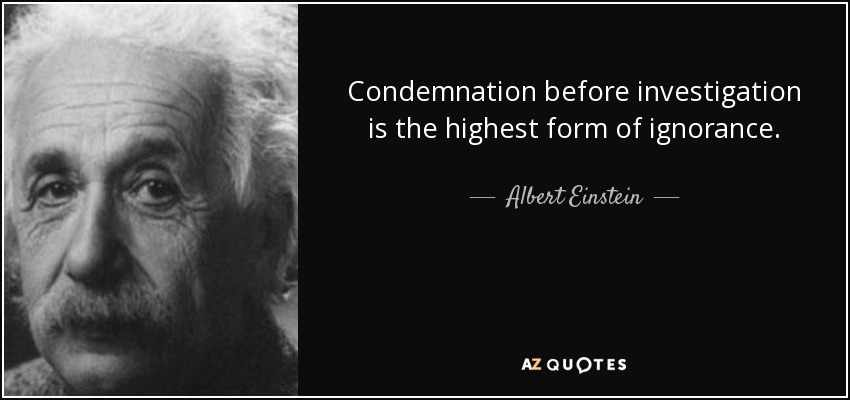
Not only does spin-off compound our pain and brings about unnecessary suffering, but our stories lead us to become a version of our thoughts. We start to become what we condemn others for and fail to see it. For instance, I felt hurt after reading about the war in Gaza. Rather than process this hurt, my mind spun off and added stories that created feelings of anger, anxiousness, and fear. I judged the world. I allowed my anger to project outwards, and I was somewhat cruel to my husband.
These compounded emotions cause us to take actions that are more likely to hurt those around us, in addition to ourselves. I am more likely to lash out at my husband after he tells me to “pump the brakes” when driven by a state of anger and anxiousness. “How dare you. Don’t tell me to breathe. You have no idea what is going on!” My response would differ if I was aware of my inner hurt and didn’t try to resist it. I likely would respond with compassion for myself and my husband and even take a moment to breathe rather than attempt to fight for my perspective. Compassion feels so much better than anger. And yes, we often choose anger. Isn’t this fascinating?
How I Became What I Condemned
Here are some examples of how pain has turned into suffering in my life and how I became what I condemned.
- Circumstance: My toddler yells in public places
- Thought: I can’t believe he is doing this (this shouldn’t be happening)
- Pain: Fear
- Spin-off: Everyone is going to judge my parenting, he is so difficult, I can’t believe this is happening, I want this stage to end, I am so embarrassed, I must be doing something wrong
- Suffering: Fear+ Anxiousness+ Frustration + Resistance + Anger + Embarrassment
- Result: I throw a fit in my mind like a toddler
** Notice how my thoughts and spin-off lead me to become what I condemned.
- Circumstance: A person said words to me
- Thought: That person is out of line
- Pain: Hurt
- Spin-off: How dare they, who do they think they are, that was so uncalled for, I should have told them off, next time I will give them a piece of my mind.
- Suffering: Hurt+ Anger+ Judgement + Righteous + Disconnect
- Result: I am out of line
** Notice how my spin-off compounded my initial pain by adding more layers of negative feeling onto it.
- Circumstance: Today is Sunday
- Thought: Sunday’s are terrible
- Pain: Fear
- Spin-off: I have too much to do, I just want to hide under to covers, there is nothing to look forward to, I don’t want to face the world
- Suffering: Fear + Anxiousness+ Overwhelm + Hopeless
- Result: I act terribly on Sundays
Notice Your Suffering

There is always something our minds can find to suffer about whether it be a war in the Middle East, a natural disaster, a to-do list, relationships, death, finances, terrible Tuesdays, a screaming toddler, traffic, racism, politics, a losing sports team, cold weather, hot weather, or stale bread. However, we may be doing ourselves, others, and the world a disservice when we fail to realize the amount of suffering we create for ourselves. All of which is a choice. We might be robbing ourselves of the chance to cultivate a sense of resilience, hope, compassion, and empathy in place of our suffering. We miss the opportunity to use more constructive emotions to fuel our actions rather than become what we condemn.
It likely feels more natural and automatic to spin off into a projected future or an unfair past than to practice remaining present. That is because there is an automatic and primitive part of our minds that thinks it needs to protect us by focusing on things that could go wrong rather than staying with what is. The problem with this part of our mind is it often takes us down a path leading to despair, anger, overwhelm, judgment, helplessness, anxiety, and hopelessness without our awareness. This primitive, habitual and automatic part of our mind is not designed to lead us to peace. This is for the conscious, practiced, intentional, observing part of our mind to decide. This aspect of mind, that is an essential part of us, allows us to take control of our thoughts and redirect them before they drag us into a pit of despair. Then we can participate with life from a place of understanding, and gracefully walk alongside it, rather than suffer through it.
Take Constructive Action To End Suffering

The less we suffer, the less suffering we add to the world. I feel it is our responsibility to become aware of our inner states of suffering so we can allow them to pass through us rather than project them out into the world.
Next week, we will explore ways to combat spin-offs. This week, I want to challenge all of us to notice our suffering by looking inward and identifying when we are in a state of spin-off. Emotions we deem ‘negative’ like anger, jealousy, or overwhelm may be our clues to help us recognize when our mind is layering on stories about our pain. Notice what the facts are versus thoughts or perspectives. How do the thoughts we have create our experience of the circumstance? Is this suffering we create for ourselves somehow serving a purpose that we think is useful? If so, why might this be? Do this without judgment. Have endless compassion for yourself. Remind yourself that we are safe right now. Remember, we are all here doing the best we can.
When we make it past our suffering, we will likely notice that at the root of our pain lies fear, hurt, or a mixture of both. Maybe we fear not being good enough, circumstances won’t turn out as we want them to, or we won’t be okay. We may even discover that we are afraid of feeling a negative emotion, like hurt, disappointment, grief, or sadness. Perhaps we generate stories that create anger to protect us from the underlying hurt we feel after losing someone we love, changing relationships, unmet expectations, or failure. Notice your fear. Notice your hurt. Do this without judgment. Have endless compassion for yourself. Remind yourself that we are safe right now. Remember, we are all here doing the best we can.


